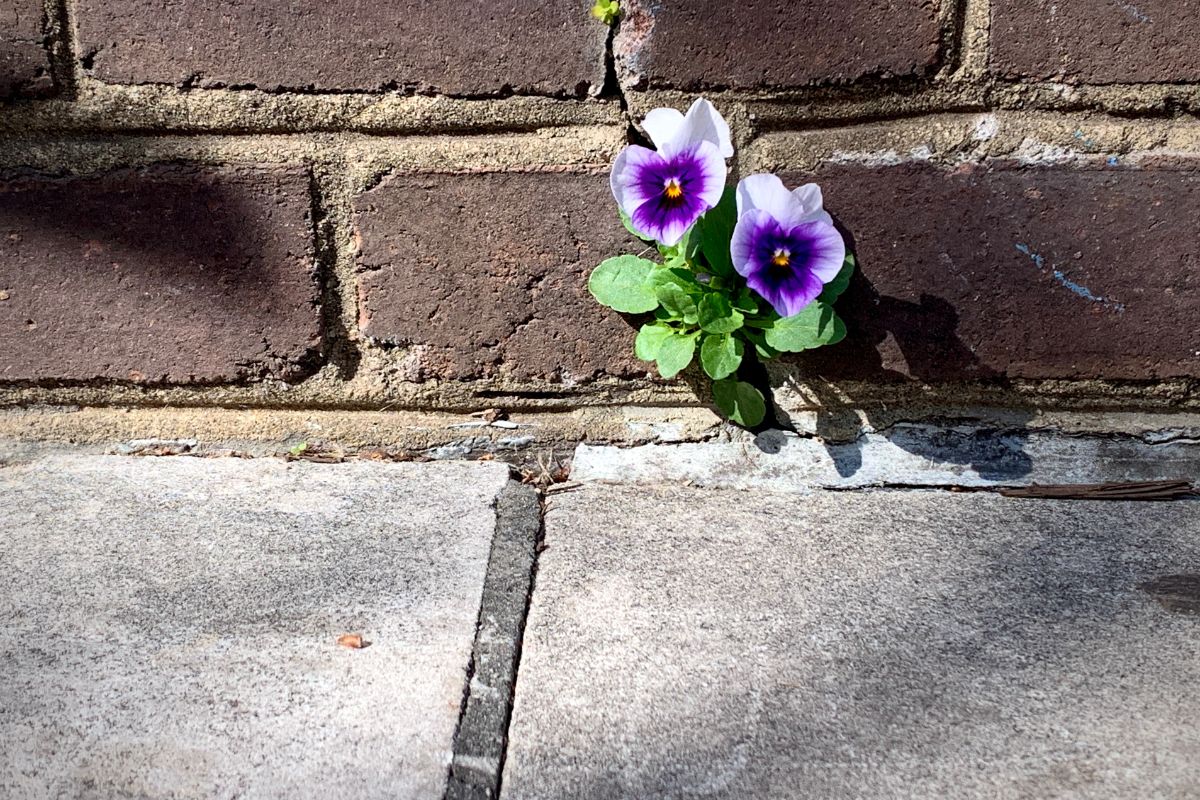The word that most readers of the Harvard Business Review submitted to sum up their 2022 was resilience. Unsurprising, perhaps, given the environmental, climate and health emergencies, layoffs, economic crisis, and wars that have tested so many of us in recent times.
Challenges of all kinds, shared or personal, continue to arise to a greater or lesser degree daily, but our ability to persist through these challenges rests upon our resilience and ability to ride through the storms that life as a human being on planet Earth demands.
What is resilience?
Resilience is the ability to bounce back from setbacks, adapt to change and maintain a healthy outlook in the face of adversity. It involves a combination of psychological, emotional, and behavioural skills that enable us to cope with stress and challenges we all face.
Resilient people and communities have deeper reserves to draw upon in challenging times, which leads to reduced anxiety and depression, leading to overall better physical health and higher levels of function. However, the best part that I share with clients is that everyone can develop and enhance resilience with intentional practice.
Characteristics of high and low resilience
Experience from coaching leaders and training in personality profiling shows that people with low resilience display disruptive emotions that interfere with their ability to adapt to the circumstances around them, have a reduced level of tolerance and therefore are less able to cope generally. This low resilience can present in several different ways, including anxiety, anger or hostility, depression, self-consciousness, impulsivity, vulnerability and feeling stuck in a victim mentality.
People with high emotional stability are resilient and typically display calmness, even temper, and can face stressful situations without becoming upset or rattled. They have at their core an anchor or root which allows them to show up in stressful situations with agility, adaptability, self-compassion, wisdom, and courage.

Individuals I have coached with high resilience have demonstrated a grounded faith in their own perception and are at peace with their judgement, and yet remain open and receptive to the ideas and feedback of others.
Lessons in resilience from the natural world
Like many coaches, I find metaphors and short stories a great coaching tool to support individuals in broadening their perspective, and with resilience in mind, I like to use the Ginkgo tree story.
They have at their core an anchor or root which allows them to show up in stressful situations with agility, adaptability, self-compassion, wisdom, and courage.
The Ginkgo — a species native to China with fan-shaped leaves that turn a vibrant gold in the autumn — is one of the oldest species of tree on earth. These trees survived the asteroid that killed the dinosaurs and were some of the only living things to survive the atomic bomb that devastated Hiroshima, Japan, at the end of the Second World War.
Remarkably, the trees managed to survive these catastrophic events because their deep roots are embedded in the ground and entwined firmly into the soil, meaning they were protected from the incinerating heat and devastation on the surface. In addition, Ginkgos grow slowly and can live to be 3,000 years old because they prioritise dedicating energy towards incremental rather than rapid growth.
So, what can these prehistoric trees teach us about resilience?
Resilience is not being stoic, gritting your teeth and digging in and refusing to yield to the storm or environmental changes. Rather, it is feeling rooted in yourself and not getting swept away by the power of adversity but experiencing all the accompanying feelings and emotions, whilst retaining the ability to flex and adapt.
Five ways to build resilience and a few teachings from the Ginkgo tree
- Grow deep roots and be grounded in self-knowledge
Knowing yourself and being present, observant, and aware of your thoughts, emotions and physical sensations can help you regulate your emotions, reduce stress, and improve your overall well-being. Mindfulness practices such as meditation, deep breathing and body scan exercises can be integrated into busy daily routines to help build your resilience.
How well do you know yourself? Having a well-rounded, honest yet not overly critical view or knowledge of who you are at your best and your worst, and knowing your deeply held values and beliefs is a key step in building resilience from the inside out.
- Prioritise intention and develop a growth mindset
Growth, no matter how small growth, is still growth. Having a growth mindset is the belief that one’s abilities and intelligence can be developed through hard work and dedication. When you adopt a growth mindset, you are more likely to embrace challenges and view failures as opportunities for advancement. Developing a growth mindset can be achieved through intentional self-reflection and reframing negative self-talk and limiting beliefs.
What are the circumstances or situations where you can observe yourself having had either a fixed or a growth mindset? How did those situations differ for you? What would be the difference in your experience of life fostering a growth mindset in every situation?
- Build a healthy root system through a strong social support network
Building a healthy root system is not only about the nutrients and sustenance you consume to fuel your wellbeing; it’s also about having a strong support network of friends, family, colleagues and resources that can help you cope with stress and adversity. You can build social support networks by fostering positive relationships, seeking out mentors and engaging in networking opportunities.
When you adopt a growth mindset, you are more likely to embrace challenges and view failures as opportunities for advancement.
As a coach, I often invite individuals to map out their network, including the 10 closest people to them. Have you taken time to consider how similar and different or diverse those around you are? Having a diverse network with differing life experiences and opinions can be helpful in broadening your own perspective. If you’d like to do this exercise for yourself, I would suggest writing it down as this helps to clarify your thinking.
- Build strength by engaging in physical activity
Regular physical activity can help reduce stress, improve mood and increase your overall well-being. You can engage in physical activity by incorporating exercise into your daily routines, such as taking a walk during lunch or participating in fitness classes.
- Take the long view and seek continuous development
One of the things I have learned personally and in my coaching practice is that building resilience is really about facing fears and putting yourself in situations which are unfamiliar. Whilst continuous professional development such as training, coaching and mentoring are all good, actually putting yourself in unknown or unchartered territory is one of the best ways to grow your capacity and build resilience. The more familiar the seemingly unfamiliar becomes, the more you build your capacity to experience or understand differing views or perspectives, the greater your own capacity will be to navigate adversity when it arrives.
The benefits of high resilience
Cultivating high resilience allows us as individuals and in our communities to cope with challenges, bounce back from adversity and even grow in the face of our difficulties.The real importance and benefits of being resilient are significant across all aspects of our lives:
There is evidence suggesting that resilience is associated with better physical health outcomes. People with higher levels of resilience may experience reduced stress-related health issues, better immune system function, and a lower risk of certain illnesses.
Resilience enables individuals to effectively cope with adversity and setbacks, failures, and difficult circumstances without being overwhelmed by negative emotions. It helps people maintain a sense of balance and control during tough times, allowing them to move forward and find solutions.
Resilience is closely linked to healthier mental well-being. Those who are resilient are better equipped to manage stress, anxiety, and depression. We may have a more positive outlook and are less likely to succumb to mental health issues in the face of challenges.
Resilient individuals have better emotional regulation skills, allowing themselves to process emotions in a healthy way. Instead of suppressing or avoiding emotions, resilient individuals can acknowledge and express them constructively.

People with greater resilience are more flexible and adaptable to change. They can quickly adjust strategies and mindsets when confronted with unexpected situations, making them better equipped to handle the uncertainties of life.
Resilience fosters problem-solving skills and abilities. When faced with obstacles, resilient individuals are more likely to approach challenges with creativity, finding innovative solutions to overcome difficulties.
Resilient individuals tend to have healthier relationships. It gives them the ability to more effectively manage conflicts and communicate desires or needs, leading to more meaningful and supportive connections with others.
Resilience is often linked to higher levels of achievement and success in various fields. The ability to persevere through obstacles and setbacks can lead to greater productivity and accomplishments.
Resilience fuels motivation and goal pursuit. When facing challenges, resilient individuals are more likely to stay committed to their intentions or goals, even when progress is slow or difficult.
Resilience extends beyond the individual level. Resilient communities and societies can better recover from disasters, economic downturns, and other crises. Strong social support networks and community cohesion are essential components of collective resilience.
Resilience in a nutshell
In a nutshell, the real importance of resilience is the ability to utilise your inner strength and the power of perspective to reframe the apparent adversity through a lens of learning abundance rather than a rigid win-or-lose mindset. This is not about using toxic positivity but simply knowing that you will get through the adversity you are currently facing and the feelings you are experiencing are often temporary.
Know that you can observe your thoughts and feel the emotions, experience the pain and be able to find a way to carry on. You can lead your own unique life within the shared human experience, and although at times you will experience the unexpected, the difficult or downright tragic, ultimately your humanity gives you the ability to adapt, flex and create a new way to thrive. This is the real importance of resilience.

Joanne Cook
Joanne Cook is a life, career and executive coach and clinical hypnotherapist with a broad base of leadership experience honed during a successful 30-year career in some of the UK’s best-known retail giants.
Passionate about people, she collaborates closely with individuals to unearth their deepest purpose and is equally at ease consulting with large, complex organisations, providing bespoke business coaching, leadership development and strategic HR.
Recent projects have included clients across a broad range of industries including legal, performing arts, engineering, construction, logistics, advertising, and media.
















Be First to Comment